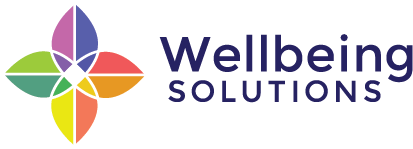Break Free from Burnout
The term ‘burnout’ may seem like jargon, referring to anyone having a rough week...or month. However, according to the World Health Organization, burnout is an occupational phenomenon characterized by feelings of energy depletion and exhaustion. Dr. Christina Maslach, Professor of Psychology at University of California, Berkeley, defines burnout as “a mismatch between the nature of the job and the nature of the person who does the job”. She describes burnout as “an erosion of the soul consisting of emotional exhaustion, cynicism, and ineffectiveness”.
No one is more familiar with this phenomenon than healthcare workers. A 2018 study showed that burnout rates among physicians and physicians-in-training exceed 50%. Note that that was before COVID-19.
As a professional group, healthcare workers have been the most affected by the pandemic fight. Common mental effects of the pandemic have included: anxiety, panic, depression, anger, confusion, ambivalence, and financial stress.(1) These are all consistent with burnout. Studies have also shown that women in healthcare have 20–60% increased odds of developing burnout.(2) Even when controlling for work hours and other factors, burnout remains higher for physicians compared with those in other careers.(3) Yet it isn’t that those who choose healthcare careers are more vulnerable to stress and burnout. Organizational and healthcare system factors are lead contributors to the endemic burnout physicians face today.
The physician burnout problem will only be resolved through shared responsibility for physician wellbeing between individuals and the healthcare system. From a system perspective, such changes can include creating fair productivity targets, addressing work–home integration, and creating leadership and team development programs to improve connection to meaning, purpose, teamwork, and efficiency. (3)
From an individual perspective, evidence recommends mindfulness, attention to self-care, reflection and self-awareness, positive psychology, and engagement with small groups around shared work experiences. (3)
If you’re experiencing soul-eroding exhaustion and disconnection from the passion that led to your commitment to healthcare, should you wait for your organization to devise solutions? The chances are that such system changes for provider wellbeing won’t come soon enough for those struggling today. The path of least resistance may instead be to focus on the individual-based approach.
The Dalai Lama has expressed that the antidote to all struggling in life, regardless of circumstance, is to take care of your own ‘inner weather’ so that you can handle whatever life throws at you. He calls this ‘wise selfishness’. In Positive Intelligence coaching, we train people to recognize how they get in their own way, and help them strengthen their mental fitness to better care for their own inner weather. Based on research from neuroscience, positive psychology, performance science, and cognitive behaviorism, we teach skills to strengthen innate resiliency so that you can remain committed to your healthcare passion without compromising your personal wellbeing.
For many, caring for others is a natural state. You haven’t lost that. It may feel — not inaccurately — countercultural to protect your own wellbeing while working within a highly demanding system. Yet consider what you can give, what impact you can have, when you’re depleted...in contrast to what you can give when you’re at your best. This is ‘wise selfishness’: Taking care of and protecting yourself so you can be of greater service to others.
It IS possible to stay committed to your healthcare passion and purpose (or to any job, relationship, or commitment) without sacrificing your own wellbeing. It isn’t enough to understand resiliency from an intellectual perspective, it must be both practiced and embodied to take root in our lives. Working in a small POD group, with support from a Certified Positive Intelligence Coach and supplemental app, you can cultivate daily practices to retrain your brain and behaviors. You can integrate wise selfishness into your regular state of being. Many of my clients have been amazed at how this impacts their performance, happiness, and relationships. Join my upcoming program Break Free from Burnout and discover how self-care is healthcare. If you have questions or want to discuss a personalized group for your team, schedule a Consult with Colleen.
Sources
(1) Bozdag F, Ergun N. Psychological Resilience of Healthcare Professionals During COVID-19 Pandemic. PubMed.gov, 2021 Dec, 124(6)
(2) Sriharan A, Ratnapalan S, Tricco AC, Lupea D, Ayala AP, Pang H, Lee DD. Occupational stress, burnout, and depression in women in healthcare during COVID-19 pandemic: Rapid scoping review. Frontiers in Global Women’s Health 2020;1. https://doi.org/10.3389/fgwh.2020.596690
(3) West CP, Dyrbye LN, Shanafelt TD. Physician burnout: Contributors, consequences and solutions. Journal of Internal Medicine, 2018, 283(6): 516–529. http:doi:10.1111/joim.12752
